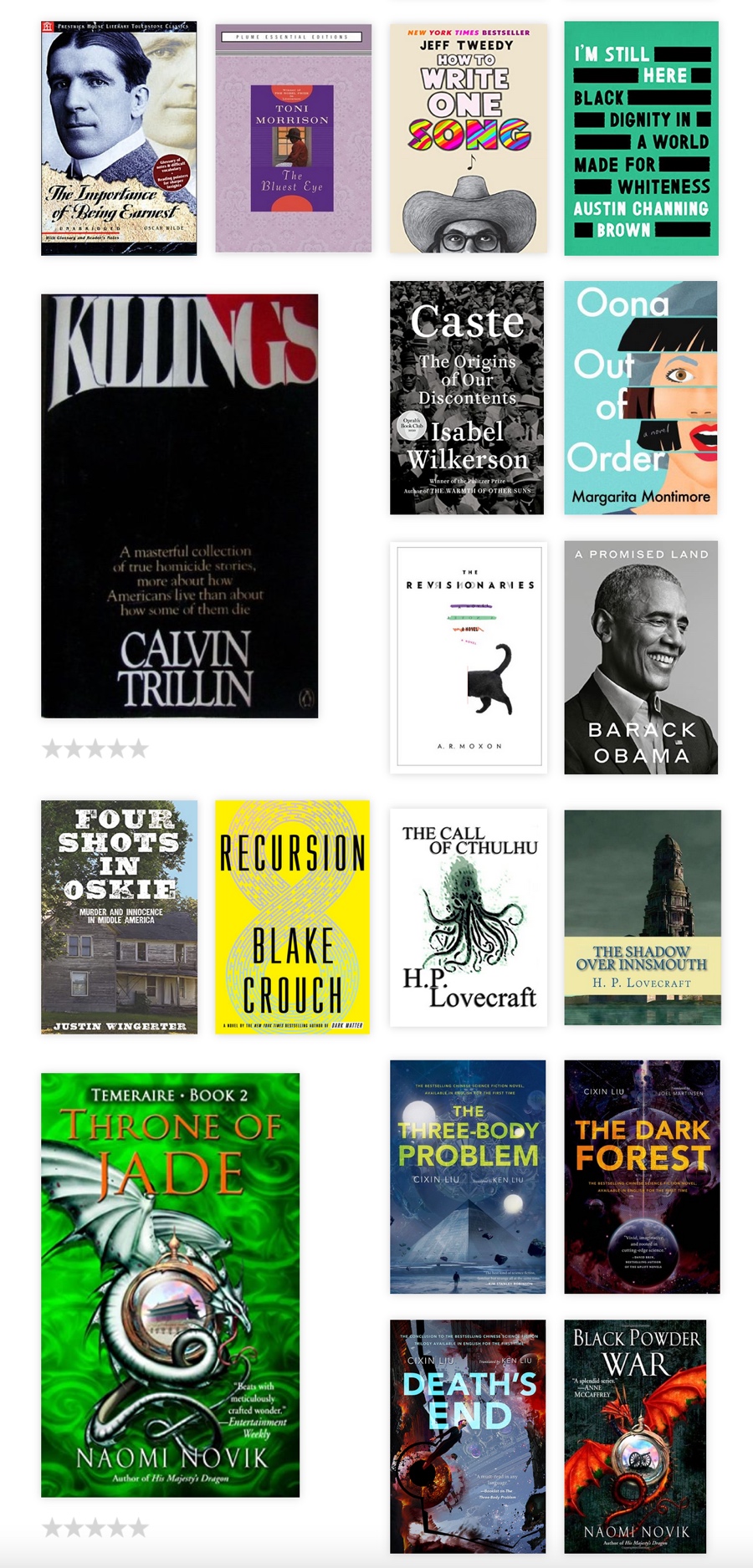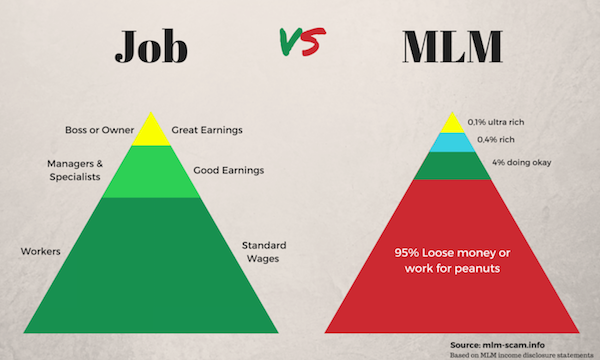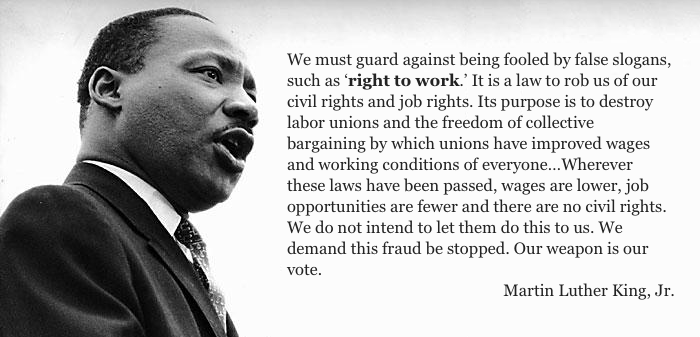Category: "culture/news"
2021 in Books
In 2021, I read 50 books. Three of those are children's books, which I wouldn't normally log, but I'm trying to read every published work of Ursula Le Guin, so I need to log them all. I wish I'd started reading Toni Morrison sooner.



Gullibility and Cynicism
Written in 1951 by Hannah Arendt who fled Germany after being imprisoned by Hitler’s Gestapo:
A mixture of gullibility and cynicism had been an outstanding characteristic of mob mentality before it became an everyday phenomenon of masses. In an ever-changing, incomprehensible world the masses had reached the point where they would, at the same time, believe everything and nothing, that everything was possible and that nothing was true. The mixture in itself was remarkable enough, because it spelled the end of the illusion that gullibility was a weakness of unsuspecting primitive souls and cynicism the vice of superior and refined minds. Mass Propaganda discovered that its audience was ready at all times to believe the worst, no matter how absurd, and did not particularly object to being deceived because it held every statement to be a lie anyhow. The totalitarian mass leaders based their propaganda on the correct psychological assumption that, under such conditions, one could make people believe the most fantastic statements one day, and trust that if the next day they were given irrefutable proof of their falsehood, they would take refuge in cynicism; instead of deserting the leaders who had lied to them, they would protest that they had known all along that the statement was a lie and would admire the leaders for their superior tactical cleverness. (Hannah Arendt, On the Origins of Totalitarianism, pp. 38)
A GOP Anti-abortion Policy Caused a 40% Increase in Abortions
A new study shows that a Republican anti-abortion policy has led to a 40% increase in abortions.
In 1984, Ronald Reagan put a policy in place relating to foreign aid. The rule says that when an overseas aid organization accepts funding from the US government, it has to agree to not even mention abortion as an option when giving counseling and medical care to locals. Reagan announced the rule in the capital of Mexico, so it's come to be known as the "Mexico City Policy." It's also often referred to as the "global gag rule" since it bars these organizations from even talking about abortion with the the people they're helping.
 Since then, the policy has been rescinded by every Democratic president and then reinstated by every Republican president. This might make for a confusing landscape for grantees, but it also provides researchers with a great opportunity to study the effects of this on-again, off-again rule. The results my surprise many Republican voters.
Since then, the policy has been rescinded by every Democratic president and then reinstated by every Republican president. This might make for a confusing landscape for grantees, but it also provides researchers with a great opportunity to study the effects of this on-again, off-again rule. The results my surprise many Republican voters.
A new study from Stanford University, released last week by The Lancet Global Health, shows that the gag rule has led to a 40% INCREASE in the abortion rate in Africa. In other words, the Mexico City Policy, which was intended to reduce abortion, actually caused MORE abortions. Withholding funding from aid groups that teach poor families about all their family planning options has led to a decline in contraception use and a corresponding increase in the number of abortions.
Voters who consider themselves "pro-life" first and foremost have had to put up with an increasing amount of nonsense from the politicians they support. Many have been willing to hold their nose and vote for nominally anti-abortion politicians who are pro-war, pro-death-penalty, corrupt, incompetent, and wholly owned by billionaires as long as they still favor restricting abortion. I was a voter like this in the first presidential race I was able to vote in: 2000. Nothing mattered to me as much as the fact that Bush was going to work toward outlawing abortion.
I began to snap out of it when I saw the GOP charging toward war in Iraq, cheered on by evangelical Christians. As the American and Iraqi casualties piled up and the basis of the war was shown to be a lie, I realized that these decisions weren't made by people who valued life like I thought they did. In time, I also saw that the measures they took to restrict abortion were not helping. Study after study has shown that the best ways to cut the abortion rate are expanding access to contraception, providing accurate sex education, and maintaining a safety net that protects families from abject poverty. Nothing else works. Not bans. Not restrictions on clinics. And certainly not voting for people eager to take bodily autonomy from women.
Opponents of abortion rights are frequently accused of attempting to control women. In my experience, this accusation is often unfair. When I was an anti-abortion voter, I sincerely thought that the GOP's policies would reduce abortion. I don't think I was aware of details like the Mexico City Policy, and I certainly didn't know it was so counterproductive. If I had known that it made the problem worse and if I'd still supported it, then questioning my motivations would have been fair game.
So, the facts are clear: The Mexico City Policy has led to more abortions, not less. Voters who claim to want to reduce abortions now have an important choice to make. Do you want to continue supporting a rule that makes the problem worse, or do you want to learn from this 35-year experiment and start supporting solutions that actually help?
Read about the Stanford study here. You'll find a summary there as well as a link to the full study, but that's behind a paywall. I snagged a copy through my college's access to the journal, so get in touch with me if you'd like to take a look.
Signs of a Pyramid Scheme
 I have an exciting opportunity for you! Wait, wait, come back! I just mean an opportunity to avoid being ripped off. I'm seeing more and more of my friends and family clogging up my social media feeds with pitches for diet pills, essential oils, vitamins, and other overpriced and medically dubious products. And they often show greater interest in recruiting more salespeople than in actually selling their products to the public.
I have an exciting opportunity for you! Wait, wait, come back! I just mean an opportunity to avoid being ripped off. I'm seeing more and more of my friends and family clogging up my social media feeds with pitches for diet pills, essential oils, vitamins, and other overpriced and medically dubious products. And they often show greater interest in recruiting more salespeople than in actually selling their products to the public.
Whether you call them multi-level marketing, network marketing, or direct selling, they're basically pyramid schemes. The simplest pyramid schemes run like this: I start a club and ask five friends to join. They pay me $100 each. Then they all recruit five of their friends to join and collect the $100 entry fee from the new members and so on. Each entry fee is split between the guy who collected it and the guy who recruited him, siphoning the money toward the top of the pyramid. Those of us that got in early make major bank, but everyone else just loses money because the recruiting can't go on forever. In fact, this scheme would burn through the entire population of the Earth in only 14 levels.
Pyramid schemes like that are illegal, but multi-level marketing schemes (MLMs) side-step the law by tacking on a product to this structure. What the product is doesn't matter all that much. It helps if the product is disposable, vague, and overpriced. It's essentially a money-laundering device. So, instead of charging an entry fee to join a pyramid club, MLMs charge a "start-up fee" to buy an initial stock of the product. That fee triggers commissions for the seller who recruited you and the seller who recruited them, etc., on up to the top of the pyramid.
MLMs offer bold promises of financial independence by highlighting people from the tiny fraction of members in the top levels of the pyramid who are making a profit. But, according to a report by the Consumer Awareness Institute, 99.6% of MLM sellers never make a profit. They lose money. Many continue sinking money into "start-up fees" and monthly autoship minimum orders until they have a garage full of unopened boxes and tens of thousands of dollars of debt. The high-pressure sales tactics required by MLMs also leave friendships in tatters.
How can you recognize the signs of an MLM? Here are a few red flags to watch for:
Unproven/overpriced product
 MLMs usually involve a product that has big promises attached to it, but little scientific research. Weight loss gimmicks like pills, vitamins, shakes, and "body wraps" are common. But cleaning products, kitchen knives, essential oils, candles, makeup, jewelry, and leggings have also been used to launder money through pyramid schemes. Examine the evidence behind the product. Is it backed up by scientific research? Or is it modern-day snake oil? Is the product actually as unique and affordable as the MLM claims? Or can you find similar products online for much cheaper? Hint: If multiple levels of upline sellers are taking a commission from every sale, then the product is probably overpriced.
MLMs usually involve a product that has big promises attached to it, but little scientific research. Weight loss gimmicks like pills, vitamins, shakes, and "body wraps" are common. But cleaning products, kitchen knives, essential oils, candles, makeup, jewelry, and leggings have also been used to launder money through pyramid schemes. Examine the evidence behind the product. Is it backed up by scientific research? Or is it modern-day snake oil? Is the product actually as unique and affordable as the MLM claims? Or can you find similar products online for much cheaper? Hint: If multiple levels of upline sellers are taking a commission from every sale, then the product is probably overpriced.
Income from recruitment
It's a big red flag if sellers make a significant portion of their income by recruiting other sellers. In a legitimate business, multiple sellers in the same area see each other as competitors and market saturation is carefully avoided. So, if you're working as a salesman and spending much time recruiting other salesmen, you're probably in a pyramid scheme. You might be ripping off your own friends and family.
Selling to sellers
Another hallmark of the shadiest MLMs is that most of the product is sold not to the general public, but to other sellers in the MLM. If you're making a profit because you recruited people who have garages full of unused product and none of you are selling much to the public, then you're in a pyramid scheme. If showing the slightest interest in a product prompts the seller to recruit you as a competing salesman, then take it as a clue that this isn't actually about selling products.
Financial statistics
 If someone is trying to recruit you for an MLM, ask questions like "How much profit does the average rep make in their first year?" and "How much of my own money do I have to spend to become profitable?" and "What percentage of sellers make no profit?" The companies often put out income disclosure statements. These tables invariably show that only the top levels of the pyramid bring home a profit. Even so, these disclosures are misleading. They use tricks like only including "active distributors" in their numbers (excluding much of the overwhelming majority of people who don't make any money) and showing gross income numbers rather than profit. $500 in income is not so impressive once you subtract the $1,000 in expenses and fees that you paid. The financial numbers MLMs disclose are terrible. But dig a little deeper and they get even worse.
If someone is trying to recruit you for an MLM, ask questions like "How much profit does the average rep make in their first year?" and "How much of my own money do I have to spend to become profitable?" and "What percentage of sellers make no profit?" The companies often put out income disclosure statements. These tables invariably show that only the top levels of the pyramid bring home a profit. Even so, these disclosures are misleading. They use tricks like only including "active distributors" in their numbers (excluding much of the overwhelming majority of people who don't make any money) and showing gross income numbers rather than profit. $500 in income is not so impressive once you subtract the $1,000 in expenses and fees that you paid. The financial numbers MLMs disclose are terrible. But dig a little deeper and they get even worse.
Too good to be true
 If something seems too good to be true, it probably is. Everyone would love to make easy money from home, lose weight without life changes, and be their own boss. That's not the way the world works. If someone is recruiting you with big promises, ask yourself if they stand to benefit from you believing a false promise.
If something seems too good to be true, it probably is. Everyone would love to make easy money from home, lose weight without life changes, and be their own boss. That's not the way the world works. If someone is recruiting you with big promises, ask yourself if they stand to benefit from you believing a false promise.
Cult-like vibe
Like cults, MLMs tend to be led by charismatic leaders, discourage dissent, drive a wedge between group members and their families, and attack outside critics. Clips from MLM conferences (see video below) include scenes reminiscent of religious revival services. Recruiters try to be your main source of information while discouraging independent research. They'll put words in your mouth by giving you copy-and-paste posts for your social media. They'll expect absolute loyalty to your upline seller and evade any questions you ask about the business model.
High-pressure tactics
If the recruiter pushes you to make snap decisions to join, upgrade your membership, or buy big batches of product, be wary. If the sellers say something is selling out at midnight, it's not. Don't let yourself be lied to. If they suggest you take out credit card debt to cover the start-up costs, run in the opposite direction as fast as you can.
If a company engages in one or more of these tactics, beware!
 Selling for an MLM is neither a job nor a small business. You're not an employee and have none of the wages, benefits, or protections that come with real jobs. But you're also not a small business owner since you don't make decisions about products and prices and you're not building anything of value that would survive your departure from the MLM. At best, you're a local affiliate of a global marketing company. At worst, you will be left with serious debt and a damaged reputation.
Selling for an MLM is neither a job nor a small business. You're not an employee and have none of the wages, benefits, or protections that come with real jobs. But you're also not a small business owner since you don't make decisions about products and prices and you're not building anything of value that would survive your departure from the MLM. At best, you're a local affiliate of a global marketing company. At worst, you will be left with serious debt and a damaged reputation.
Is the government protecting people from scams like this? Not very well. FTC investigations take a long time and generally lead to relatively meager settlements and slaps on the wrist. Companies slightly adjust their business model and carry on. This multi-billion dollar industry employs an army of lobbyists that includes former FTC commissioners. The Trump administration is stuffed with MLM profiteers like Betsy DeVos (Amway), Ben Carson (Mannatech), and (formerly) Carl Icahn (Herbalife). Trump himself has been a paid endorser of two different MLMs: ACN and Ideal Health. In the best of times, MLMs are hard to regulate. In a context or agency capture and regulatory cutbacks, MLMs are allowed to run wild. If the government fails to protect us, then we need to protect each other.
Below I've compiled an incomplete list of some popular MLMs. Each company name is a link to a story from a former seller explaining why they left.
Advocare
Amway
Arbonne
Beachbody
doTERRA
Herbalife
It Works!
LuLaRoe
Mannatech
Mary Kay
Nu Skin
Young Living
Additional information
MLM's Abysmal Numbers - The key chapter in a report from the Consumer Awareness Institute. This is the source of the stat that 99.6% of MLM sellers end up losing money overall. Plenty of info there about how they arrived at that number.
Multilevel Marketing: Last Week Tonight with John Oliver - A funny takedown of a dangerous industry. I've embedded it at the bottom of the page. If you don't have time to read up on the issue, watch the video.
The Perils of Multi-Level Marketing Programs - Texas Public Radio.
Multilevel Marketing: The Day Job that Doesn't Pay - from Truth In Advertising, a non-profit watchdog organization.
Elle's Younique Story - A first-hand account of what it's like to join an MLM.
Legging Company, LuLaRoe Accused of Misleading Consultants - Valley News Live.
r/AntiMLM - a Reddit page filled with horror stories from MLM victims, funny memes, and grousing about how obnoxious the "huns" are on social media.
The 10 Ugly Truths MLMs Don't Want You to Know - on Talented Ladies Club.
Why Joining An MLM Will Ruin Your Life - by Eliza Romero.
Betting on Zero - a documentary on Netflix about some efforts to fight back against MLMs.
How MLMs are Hurting Female Friendships - From The Washington Post.
Drew Brees Has a Dream He'd Like to Sell You - An ESPN investigation into Advocare, a vitamin company will loads of paid endorsers from professional sports.
The Dream - A professionally done podcast exploring the history of MLMs.
Sounds Like MLM, but OK - A more casual podcast that describes itself as "dedicated to discussing the buffoonery behind Multi-Level Marketing."
The Truth About Plexus, Advocare, ItWorks!, and other MLM Health and Weight Loss Products - Sarah Moran, a registered dietitian nutritionist, looks at several weight loss products sold through MLMs.
How to Spot a Pyramid Scheme - A short animated video explaining how MLMs work and how to spot red flags.
Direct Sales: The Truth About Selling From Home - An article from Parents magazine including interviews with victims and experts.
The 5 Fatal Flaws of Multi Level Network Marketing - Good breakdown of why the MLM business model is unsustainable, regardless of the product.
Here's the video from Last Week Tonight with John Oliver:
Is Shakespeare Dead? by Mark Twain

This little book is hilarious, but it's not about Shakespeare. Oh sure, on the surface it's an investigation into who authored the Plays and Poems, but if you only read it on the surface then you'll find it a puzzling and frustrating book. In the very first chapter, Twain explains that he had no good reason to care about the controversy to begin with. But the riverboat pilot he was apprenticed to loved to recite Shakespeare and draw our young Twain into debating the authorship question.
This passage seems to be one of the keys of the whole book:
Study, practice, experience in handling my end of the matter presently enabled me to take my new position almost seriously; a little bit later, utterly seriously; a little later still, lovingly, gratefully, devotedly; finally: fiercely, rabidly, uncompromisingly. After that, I was welded to my faith, I was theoretically ready to die for it, and I looked down with compassion not unmixed with scorn, upon everybody else's faith that didn't tally with mine. That faith, imposed upon me by self-interest in that ancient day, remains my faith to-day, and in it I find comfort, solace, peace, and never-failing joy. You see how curiously theological it is.
This is a book about how we form our beliefs and how we attempt to share them: Not very well on either count. All throughout the book he makes it clear that both sides of the controversy built their arguments on conjecture. Yet he appears to take the discussion quite seriously at other points. I can see why some readers get frustrated. By the opening of chapter 11 he comes clean:
Am I trying to convince anybody that Shakespeare did not write Shakespeare's Works? Ah, now, what do you take me for? ... No-no, I am aware that when even the brightest mind in our world has been trained up from childhood in a superstition of any kind, it will never be possible for that mind, in its maturity, to examine sincerely, dispassionately, and conscientiously any evidence or any circumstance which shall seem to cast a doubt upon the validity of that superstition. I doubt if I could do it myself.... We get them all at second-hand, we reason none of them out for ourselves. It is the way we are made.
Now Twain is taking up the real subjects of the book: Prejudice, intolerance, being entrenched in an opinion that is based on nothing, and those subtle ways our speech can denigrate the people foolish enough to belong to a group other than ours. You can almost see him winking at us as lampoons the pearl-clutching call for civility just before slandering his opponents as "thugs":
The upholders of the Stratford–Shakespeare superstition call US the hardest names they can think of, and they keep doing it all the time; very well, if they like to descend to that level, let them do it, but I will not so undignify myself as to follow them. I cannot call them harsh names; the most I can do is to indicate them by terms reflecting my disapproval; and this without malice, without venom. To resume. What I was about to say was, those thugs have built their entire superstition upon INFERENCES...
This is one of many spots where Twain had me laughing out loud. He also got me every time he quoted Shakespeare's epitaph, a running joke about how those barren and trivial words are the only ones that can be reliably attributed to Stratford Shakespeare.
Seeing this nugget from chapter 12 as a "quote of the day" yesterday is what prompted me to read the book:
I cannot call to mind a single instance where I have ever been irreverent, except toward the things which were sacred to other people.
When he wrote that, Twain had an even better line languishing in his unfinished novel The Mysterious Stranger:
Irreverence is another person's disrespect to your god; there isn't any word that tells what your disrespect to his god is.
Little about argumentation has changed in the 100 years since Mark Twain wrote this book. We still form opinions based on sketchy information (now we call it fake news) and we still talk to each other like enemies, even when the dispute is a trivial one. We go to any lengths to excuse the bad behavior of people in our tribe and easily convince ourselves that we need not worry about the humanity of the "thugs" in other tribes. Would Twain have been surprised to know that the passage of a century would change so little? Of course not, he predicted it would take at least three centuries (the book was published in 1909):
I haven't any idea that Shakespeare will have to vacate his pedestal this side of the year 2209. Disbelief in him cannot come swiftly, disbelief in a healthy and deeply-loved tar baby has never been known to disintegrate swiftly, it is a very slow process. It took several thousand years to convince our fine race--including every splendid intellect in it--that there is no such thing as a witch; it has taken several thousand years to convince that same fine race--including every splendid intellect in it--that there is no such person as Satan; it has taken several centuries to remove perdition from the Protestant Church's program of postmortem entertainments; it has taken a weary long time to persuade American Presbyterians to give up infant damnation and try to bear it the best they can; and it looks as if their Scotch brethren will still be burning babies in the everlasting fires when Shakespeare comes down from his perch.
He wrote that paragraph with his tongue firmly in-cheek, just as he wrote most of this book. He knew full well that millions still believed in witches and Satan in 1909, just as millions continue to do today. Will we ever get better at discerning truth from fiction? Maybe. Probably not. But surely all reasonable people can agree that Shakespeare's epitaph is garbage:
Good friend for Iesus sake forbeare
To digg the dust encloased heare:
Blest be ye man yt spares thes stones
And curst be he yt moves my bones.
You can read the full text of Mark Twain's Is Shakespeare Dead? here: http://www.online-literature.com/twain/is-shakespeare-dead/1/
Discrimination Remains Legal
Under current law in Adrian, Missouri, it is completely legal for someone to be fired, evicted, or refused service just because they’re gay. When I proposed a nondiscrimination ordinance to the Adrian City Council, one objection opponents raised was “If that happens, they can just file a lawsuit.” I pointed out that such a lawsuit would go nowhere in a state that doesn’t outlaw that type of discrimination. A recent court ruling proves that discrimination remains legal in Missouri.
In late 2013, before I introduced the ordinance, I approached the other members of the council and explained that gay and transgender people can legally get fired, evicted, or refused service based on their orientation or gender identity. Two members agreed with me that this was unjust and they said they would support a nondiscrimination ordinance. Several cities in Missouri had already adopted such ordinances because these types of discrimination remain legal under state and federal law.
Having secured the three votes needed for passage, I recruited some help in drafting the bill. I reached out to several equal rights groups and Aaron Malin, Executive Director of Missourians for Equality, agreed to help. We looked over Adrian’s current municipal code and Aaron put together two options that would accomplish our goal of making discrimination illegal. I added the topic to the agenda for the March, 2014 meeting and arrived with both ordinances in hand.
Based on an earlier council discussion, I knew that the city attorney was a fundamentalist Christian. So, I wasn’t surprised when she opposed the ordinance. She argued that this law would open the city up to lawsuits. I pressed her to provide examples and she wasn’t able to. But her objections must have given one council member second thoughts because when the vote was cast, only two members supported it. The other two opposed it. The Mayor of Adrian only votes in order to break a tie. As I feared, he cast a no vote, defeating the bill.
During the time between the March and April meetings, I repeatedly tried to get the city attorney to elaborate on her objections. She ignored all my requests. I spoke with the council member who had pledged to support the bill before opposing it and tried to understand the reasons behind that change. In our original conversation this member had said, “If someone wants to work, they shouldn’t have to worry about being fired for that.” I still don’t understand exactly what changed this person’s mind.
For the April meeting, the last one before my term ended, Mr. Malin appeared before the council to answer questions. He explained that none of the other cities have experienced legal trouble after passing nondiscrimination ordinances. In fact, the council members who tried to stop the law from passing in Kirksville were voted out in the next election. St. Louis, Kansas City, and Columbia have seen no ill effects after passing their equality ordinances.
In the meeting, I asked the city attorney if she had come up with any examples of cities getting into legal trouble after passing similar ordinances. She still had none, as I expected. But she did surprise me by dropping that line of argument altogether and switching to a new one. Now she said that we should only pass laws to address existing problems and since we didn’t have evidence of any ongoing discrimination, it would be wrong to pass the ordinance.
In the months since, I’ve thought a lot about how I could have responded to that. I wish I had said something like this: “Those of us who have spent most of our lives in Adrian can probably name at least one LGBT person who has left our city, at least in part, because of the way they were treated. Maybe you haven’t seen that side of Adrian in your brief time here, counsel, but I believe our city would be better if we were open and welcoming to all types of people. Yes, there is a problem. Discrimination remains legal here and we have the power to change that.”
When the vote was cast, the measure failed again, 3-2, with the mayor breaking the tie. It was a disappointing end to my time on the council. I’ve often thought about writing this article about the experience, but I put it off because it seemed futile and upsetting. This week, two items in the news brought my mind back to that meeting a year and a half ago.
On October 27, 2015, the Western District Missouri Court of Appeals ruled against James Pittman, a Jackson County man who had been harassed and then fired from his job for being gay. From the ruling: “If the Missouri legislature had desired to include sexual orientation in the Missouri Human Rights Act’s protections, it could have done so. No matter how compelling Pittman’s argument may be and no matter how sympathetic this court or the trial court may be to Pittman’s situation, we are bound by the state of the law as it currently exists.”
The Court recognized that Pittman was treated unfairly. But they were unable to rule in his favor because federal, state, and local lawmakers (mostly Republicans) have refused to outlaw this type of discrimination. This is a problem we can fix. But as long as keep electing people who put their own prejudices ahead of their neighbors’ well-being, then discrimination will continue. State Representative Stephen Webber (D - Columbia) has repeatedly introduced a bill in Jefferson City to outlaw this type of discrimination, but Republican leadership in the state House has blocked it each time.
The second news item that brought this episode back to the front of my mind was from Houston, Texas. In May of 2014, just a month after the Adrian council rejected my ordinance, the Houston city council passed a similar nondiscrimination law with their mayor’s support. Conservative religious groups immediately began working to repeal the equal rights ordinance. They managed to get a referendum on the ballot and they launched a transphobic campaign focused on the fear that men would invade women’s bathrooms as a result of the nondiscrimination law. Last week, the referendum struck down the equal rights law by a vote of 61%-39%. Now discrimination is legal again in Houston.
“The arc of the moral universe is long, but it bends toward justice.” That line is often attributed to Martin Luther King, Jr., but it is not original to him. It dates back to Theodore Parker and the abolition movement of the 1850s. Changing the prejudiced mindset of a nation takes many generations. We’ve seen much progress since Parker first wrote those words, but there’s much left to do. A Supreme Court ruling in 2003 prevents gay and lesbian citizens from being thrown in jail for who they are. Another ruling from last summer allows same-sex couples to marry. But they can still be evicted, fired, or thrown out of a restaurant just for refusing to hide who they love. Is that the kind of community we want to be?
War in Reverse
Happy Veteran's Day. Happy Armistice Day. Happy birthday to Kurt Vonnegut, the writer who taught me the difference between the two, and a big happy birthday to my friend Matt Sears, who first put Vonnegut's Slaughterhouse-Five into my hands.
In this passage from Slaughterhouse-Five, Vonnegut, a Veteran of World War II himself, describes a character seeing a war movie in reverse.
Slaughterhouse Five - Kurt Vonnegut reads. War backwards. from LloydRizla on Vimeo.
Today I hope we can honor the men and women who have gone into harm's way in service of their country, but even more, I hope we can, in the original spirit of Armistice Day, work together toward a lasting peace like the one in Billy Pilgrim's vision.
Solar Panels on City Hall
Last week the City of Adrian had an 20 kW array of solar panels installed on city hall. I had a few reasons for adding this project to the City's agenda. Fossil fuels won't last forever. That's why they're called nonrenewable energy. As they dwindle, their prices will go up. Fossil fuel companies are already reaching for more costly and difficult sources, like the tar sands in Alberta, Canada which are now being piped through our community and putting our water supply at risk. The transition away from coal and oil won't happen overnight, but it will happen eventually. I think local government should be a leader when it comes to adopting tomorrow's technology. Pollution and climate change may not seem like urgent issues in our little town, but we can still play a role in making a better world for our children and grandchildren. But the thing that really convinced our city council to act was the financial angle.
The solar panels on City Hall are an investment that will show an impressive return. After the rebate from Kansas City Power & Light, this will only cost the city $14,500. Over the lifetime of the panels they will generate more than $100,000 worth of electricity.
In 2008, Missouri voters overwhelming approved the Clean Energy Initiative, which requires power companies to get 15% of their electricity from renewable sources by 2021. KCP&L created a rebate program to help them reach this goal. As soon as our panels are operational, the utility will send us a check for $41,500, which is 74% of the project's total cost of $56,000.
KCP&L will also install a net meter. Like a regular meter, a net meter tells KCP&L how much power they're selling to us, but it also runs in the opposite direction so that they can credit our account when our panels are generating more power than we are using. In the past, City Hall has had electric bills around $340 per month. With the electricity we get from the sun, our bill will drop to nearly zero most months. The solar panels will pay for themselves in around five years, then they will provide us with free energy for another 15 or 20 years.
The City of Adrian is not alone in taking advantage of this opportunity. Citizens Bank has installed solar panels at several locations, including their Adrian branch. Last month, the City of Butler broke ground on what will be one of the largest solar plants in the midwest. The installer that Adrian hired, Roof Power Solar, is based in Rich Hill and has done projects on businesses and homes in Cass, Bates and Vernon Counties. The City of Adrian has other buildings that could be powered by future solar projects, including our public works building and our water plant.
Kepler
 After an impressive mission, one of humanity's most amazing machines appears to be in trouble. The Kepler space telescope has found over 2,700 planets since it was launched four years ago. It stares at the stars in one patch of the sky (near constellation Cygnus) and detects when the stars dim or wobble a tiny amount, tip-offs that planets are orbiting the star. Now that the second of four stabilizing wheels has failed, scientists back on Earth are no longer able to control Kepler.
After an impressive mission, one of humanity's most amazing machines appears to be in trouble. The Kepler space telescope has found over 2,700 planets since it was launched four years ago. It stares at the stars in one patch of the sky (near constellation Cygnus) and detects when the stars dim or wobble a tiny amount, tip-offs that planets are orbiting the star. Now that the second of four stabilizing wheels has failed, scientists back on Earth are no longer able to control Kepler.
The most famous and prolific space telescope, Hubble, was repaired by NASA astronauts four times, but that's not an option for Kepler. While Hubble is in a low Earth orbit 350 miles above the surface, Kepler orbits the Sun, not the Earth. It's currently 40 million miles away. NASA can't even get into low earth orbit without hitching a ride from Russia, so a repair mission is out of the question. Kepler's cost was $600 million, a bargain compared to Hubble's $10 billion cumulative price tag (still worth it).
Kepler's work is the latest in a long string of discoveries that show humans that the world is much bigger than we thought. Twenty years ago we weren't sure whether other stars had planets at all. Now we see that planets are very common and there's probably an average of at least one planet per star throughout the galaxy. In its one little area, Kepler found 262 planets that appear to be habitable.
Here's hoping we can replace Kepler with a whole fleet of even more powerful planet-hunting telescopes.
MLK on "right to work"

We must guard against being fooled by false slogans, such as ‘right to work.’ It is a law to rob us of our civil rights and job rights. Its purpose is to destroy labor unions and the freedom of collective bargaining by which unions have improved wages and working conditions of everyone…Wherever these laws have been passed, wages are lower, job opportunities are fewer and there are no civil rights. We do not intend to let them do this to us. We demand this fraud be stopped. Our weapon is our vote.
-- Martin Luther King, Jr.



Recent comments